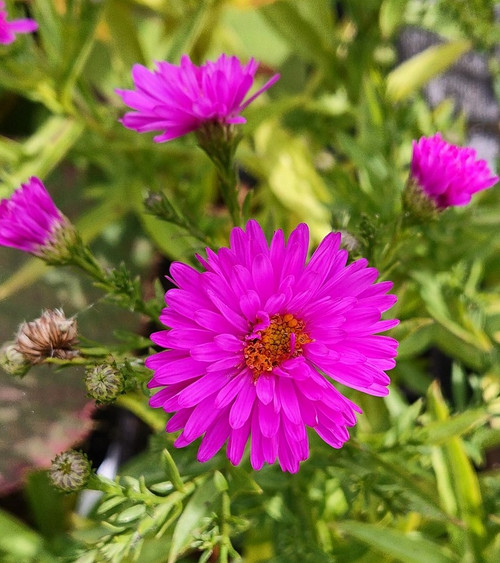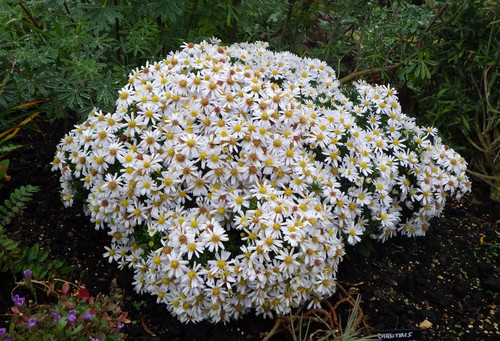Plant Overview
Named after a former Norfolk resident, this Aster has wonderful semi-double rich (Bishop) purple flowers.
Very easy to grow sun or partial shade.
Mildew resistant.
Height: 75cm
Asters:
The perennial Asters, which include Michaelmas Daisies, are essential to prolong the flowering season of most gardens well into autumn.
When autumn tints are mostly reds and golds, Asters provide refreshing contrasts in whites, pinks, lavenders and purples.
They will grow in sun or light shade.
Another advantage is that they come in a wide range of heights, to suit all purposes.
Michaelmas daisies were introduced from America in the 17th Century and became a cottage garden favourite. Those from New England took the name Novae-Angliae and those from the low-countries' settlements around New Amsterdam (now New York), were called Novi-Belgii.
Note: Asters have largely been renamed Symphyotrichum but we are stick-in-the-muds and prefer the traditional name.
- Asters attract honeybees, bumblebees and butterflies to the garden.
- The name Aster comes from the old Greek word 'astér' which means 'star' and refers to the shape of the flower.
- The Hungarian uprising of 1918 is called the Aster Revolution because demonstrators in Budapest wore the flower in large numbers.
- The aster is the flower for a 20th (porcelain) wedding anniversary.
- The Germanic tribes believed that the smell of burnt foliage from wilted asters drove away poisonous snakes and evil spirits for the winter.
- In the modern language of flowers the aster represents love and patience.
Common name(s): Michaelmas Daisy











